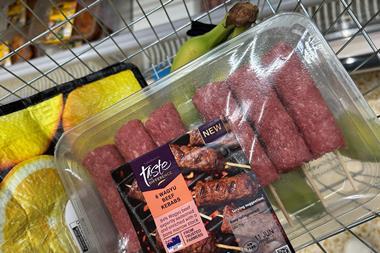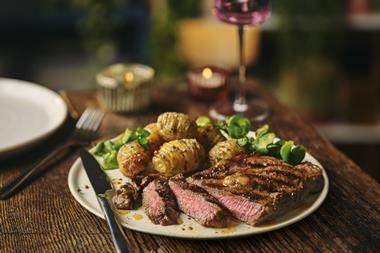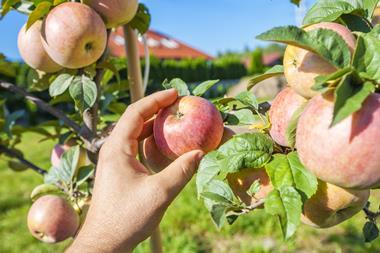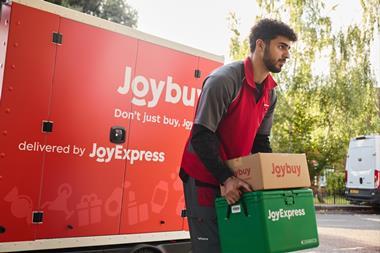Mike Ingham
Fear of violent protests by lamb producers against retailers has helped prompt the National Farmers' Union to ask DEFRA and the European Commission for a subsidised storage scheme to prevent a market collapse during the coming autumn.
The NFU's concern is known to be shared by the major multiples, and preliminary private talks have already been held to consider ways of absorbing an anticipated heavy surplus of home produced lambs.
Severe disruption of the market is seen as an almost inevitable consequence of FMD because the ban on exports of British livestock and meat will trap in the domestic market a huge tonnage of lamb that would normally be shipped to France and other EU states.
Most British sheep industry observers believe the result could be a price shakeout even more traumatic than the market collapses of 1998 and 1999, which provoked picketing of stores and distribution depots by farmers who claimed retailers were profiteering and failing to help the home industry compete against imports.
"We do face a lamb supply balance problem this autumn," said NFU livestock economist Kevin Pearce on Wednesday. As Pearce pointed out, the UK sheep industry would usually export about a third of its output in the second half of the year.
On an annual basis, exports are normally at least 100,000 tonnes, almost matching imports, out of total production averaging at least 350,000 tonnes.
FMD control measures, including culling and movement restrictions, will reduce production this autumn but nowhere near enough to offset the loss of exports.
On the other hand, any reduction in imports, mostly from New Zealand, will also be far too modest to create a sufficient new gap in the home market. Pearce said the NFU was pinning its hopes on a subsidised private storage programme to take pressure off the market temporarily. "We've raised this with DEFRA and Brussels. We'd like DEFRA to make a formal approach to Brussels by the end of July," said Pearce.
Informal indications are that a scheme will be approved. Lambs will be killed and processed, and the cuts frozen, with storage aid payments allocated on a tender basis, not fixed price, for a minimum of three months and a maximum of seven months.
"We'd be looking for a market among people like the ready meal makers," said Pearce. "We'd be trying to displace imports."
For this reason the lambs would be cut before freezing, as most of the manufacturers are not interested in whole carcases and regard meat cut from frozen as inferior. And without an assured market among the further processors, carcases emerging from storage would compete directly against later fresh lambs, causing prices to fall again.
{{NEWS }}
Close menu
- Home
- Retail & Wholesale
-
Products & Suppliers
- Back to parent navigation item
- Products & Suppliers
-
Product Categories:
- Back to parent navigation item
- Product Categories:
- Alcoholic drinks
- Bakery
- Cereals & breakfast
- Cheese
- Chicken & poultry
- Chocolate
- Confectionery
- Crisps, nuts & snacks
- Dairy
- Fish
- Fresh produce
- Frozen
- Household
- Meat
- Own Label
- Sauces & condiments
- Seasonal
- Soft drinks
- Vaping
- Vegan & plant-based
- World foods
- Suppliers
- People
- Reports & Data
-
Topics A-Z
- Back to parent navigation item
- Topics A-Z
-
Popular topics:
- Back to parent navigation item
- Popular topics:
- Cost of living crisis
- Crime
- Deposit Return Schemes
- Finance
- Government & Regulation
- Health
- Inflation
- Loyalty
- Marketing
- Mergers & Acquisitions
- New Product Development
- Sourcing
- Supply chain
- Sustainability & environment
- Technology
- Ultra Processed Foods
- Vaping
- A-Z all topics
- Content by type:
- Events
- Ask iA (beta)
- Subscribe now
Sign in to comment on this article
Not logged in before? Register for FREE guest access today.
You will be able to:
- Read more stories
- Receive daily newsletters
- Comment on stories
Advert



















No comments yet